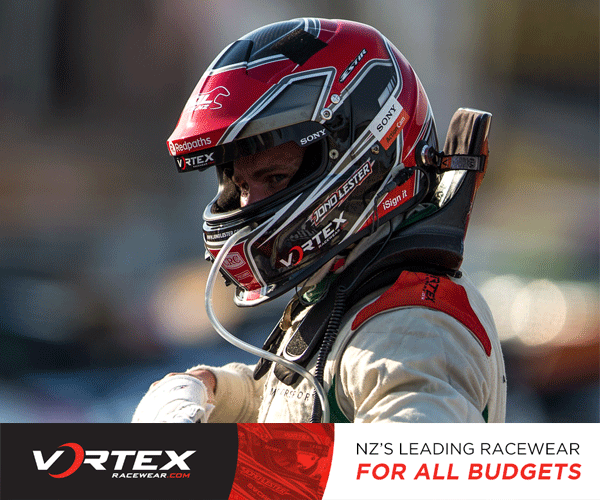Cadillac DPi team Action Express Racing has scored its third Rolex 24 Hours at Daytona win, its Mustang Sampling #5 DPi V.R of Filipe Albuquerque, Christian Fittipaldi and Joao Barbosa completing a record-breaking 808 laps of the Floridian speedway, breaking both the record of total laps in the history of the race, and total distance by significant margins.
The team had to fight through sun, rain and overheating issues to take the flag, its #5 having a mostly dominant run in the second half of the race, up against the sister Whelen Engineering Cadillac and the Acura Team Penske ARX-05s before the latter pair hit trouble and fell out of contention before the race reached its three-quarter mark.
It wasn’t easy in the final hours, both Cadillacs suffering cooling issues overnight that required attention, and later in the race, the team to ease off on pace to reduce the risk of hitting trouble. In the end though, the #5 took the win, ahead of the #31 Whelen machine of Mike Conway, Stuart Middleton, Felipe Nasr and Eric Curran that led a great portion of the race, but with the overheating issues and an early puncture, the quartet missed out on victory.
“That was the longest hours in my life, we had some issues with the car but this team is amazing,” Barbosa said after taking the win. “We managed the car, the pace, and it wasn’t easy. This has been a long time coming, I’m lost for words, so happy.”
Third, after a hard charge at the end was the CORE autosport ORECA 07 Gibson, driven by Romain Dumas, Colin Braun, Loic Duval and Jonathan Bennett, which had an impressive, metronomic run, without any significant issues, eventually climbing the order and staying in with a chance to sneak a win had the Cadillacs hit late trouble. The team crossed the line a lap off the lead.
The rest of the class runners meanwhile, all hit trouble, creating the big headlines of the race.
The biggest story, arguably, came in the tyre department, most of the Prototype field suffering at least one puncture during the race, only CORE’s ORECA, Penske’s Acuras and the #5 Action Express Cadillac escaped without any blowouts. The issue so significant that many teams suffered multiple punctures, one in particular, Wayne Taylor Racing’s Cadillac, suffering “eight or nine”, prompting the team to park its 2017 Rolex-winning car overnight to avoid risking its drivers’ safety.
The placement of the blame is hard to pinpoint here, many teams reporting that they were running within the recommended parameters from Continental, while tyre supplier itself looked to the overall pace of the race, and competitiveness as the potential downfall of its compound. It was a remarkable race in that manner, the field finishing 24 hours without any incidents requiring lengthy Full Course Yellows, causing hours of green flag running, with teams on recovery drives unable to gain back laps on wave arounds.
Finishing fourth was the #32 United Autosports Ligier, which suffered from issues – concerning the throttle – and with blowouts, but had a far cleaner run that the sister #23 JS P217 of Fernando Alonso, Phil Hanson and Lando Norris. The latter trio drove well, but had multiple issues, throughout the race, with the clutch and brakes, in addition to its own share of punctures. The two-time Formula One World Champion though, left having learned a lot, in preparation for a potential Le Mans attack. He also said after his final stint that he enjoyed the event so much that when asked if he’d be back at Daytona in the future, he said: “I think so.”
Fifth on the road was the #78 Jackie Chan DC Racing ORECA, the 2017 Le Mans LMP2-winning outfit struggling for outright pace, and of course, with tyres, the team telling DSC that each car had at least four punctures during the race.
Further back, JDC Miller’s top car finished a strong sixth, while Penske’s highest placed Acura finished up ninth. For the IndyCar team on its sportscar return, it was a positive run, the team’s cars running strongly on pace, and proved to be mostly reliable. Its #7 was hit out on track, forcing the team to lose time repairing the car while it was in the top three, its #6 also spending time in the garage with technical niggles, finishing 10th.
Mazda Team Joest and ESM however, had arguably the toughest time of any teams in the race, all four cars across the two outfits failing to finish.
For Mazda its two Mazda RT24-Ps hit trouble early and didn’t recover, the #55 retiring after a major fire on Sunday, and the #77 suffering gearbox issues amongst other things. Neither finished, leaving the team with a lot of work to do before Sebring.
ESM meanwhile, retired the #2 Nissan DPi with a gearbox issue, and the #22 due to engine troubles. It was a rollercoaster week for it, in which its cars had speed, at times featured at the sharp end, but lacked the reliability to make any impact in the overall result.
Ford utterly dominates GTLM
While the GTD and Prototype classes had multiple teams in the mix throughout, the GTLM class result wasn’t; in doubt past the opening couple of hours. Ford Chip Ganassi Racing cruised to victory, its two GTs finishing 1-2 at the head of the field, scoring Chip Ganassi his 200th win in the process, the Fords (and the Corvettes) also breaking the old overall distance record!
In the end, the #67 crew of Ryan Briscoe, Richard Westbrook and Scott Dixon took the win – the car’s first since Mosport 2016 – in a formation finish ahead of the #66 crew of Joey Hand, Dirk Muller and Sebastien Bourdais, who won the class in the 2017 running. In total, the team lead all but 10 laps of the race, as the other teams either hit trouble or gradually fell away. The #66 crew were incredibly unlucky, the car failing to engage first gear from a pit stop and costing the team time in the pits, ceding the lead to their team-mates after leading around 20 hours of the race!
Finishing third and fourth were the two Corvettes – the #3 leading the #4 – Pratt and Miller’s two C7.Rs the only real threat, staying within touching distance at points, before slipping away in the final hours. While Corvette were on the lead lap for a good portion of the second half of the race, they couldn’t ever get close enough to snatch the lead off the Ford, that always appeared to have something else in store to help maintain the lead.
Of the other marques, Porsche failed to feature, the only real run at the lead coming in the opening hours when the rain came and Patrick Pilot in the #911 911 RSR stayed out on slicks and paced the field. The #911 though, fell back when Nick Tandy had a costly off into the tyres at the Bus Stop, leaving the #912 to fight for Porsche on its own; eventually finishing seventh overall.
The BMW M8 GTEs too, failed to trouble Ford or Corvette, the brand new cars from the Bavarian brand running solidly, but without the pace to fight up front, making it a near-invisible run for both cars. The #24 finished fifth, six laps off the lead, while the #25 crossed the line a lowly ninth, and last in the class, 51 laps down after losing a lot of time for repairs after a massive right-front puncture early in the race destroyed the corner of the car.
BMW’s struggles led to the marque handing out a note to the media, explaining that there has been a BoP conversation with IMSA during the Rolex 24 weekend. It read:
“BMW and IMSA have been working together for years in a very positive and constructive manner. The BoP system is an integral part of global sportscar racing, including the IMSA WeatherTech SportsCar Championship. BMW and IMSA will continue productive and open talks and have agreed to find an appropriate BoP assessment for the upcoming events starting at Sebring, allowing the BMW M8 GTE to show its performance for the benefit of the series, BMW and all of our fans.”
That leaves Ferrari, and the privateer Risi Competizione squad, which fought incredibly hard with its sole 488 GTE, but could only manage sixth, after multiple rear-right punctures meant the Houston-based team was unable to show its hand.
Grasser scores Lamborghini its first 24 Hour win
In what was a hard-fought, historic, but controversial class battle, Grasser Racing Team won GTD with its #11 Huracan GT3 of Rolf Ineichen, Mirko Bortolotti, Franck Perera and Rik Breukers, scoring the Italian marque its first-ever 24-hour race win.
The team finished with 752 laps, and despite so few Full Course Yellows, just a handful of seconds ahead of the #86 Michael Shank Racing Acura that came home second and the #48 Paul Miller Racing Lamborghini that completed the class podium. Before going any further, it must be noted that the GTD class result, plus the results in Prototype and GTLM, have made history, the 2018 running the first since 1962 that finished without a Porsche on a class podium; the streak is over.
The top three mentioned, and the Riley Motorsports Mercedes which finished fourth after having to make a splash in the final minutes while running just behind the winning car, all swapped places in the second half in the running for the podium spots, but the controversy came in the first half of the race.
Early on the class was dominated by the Land Motorsport Audi R8 after the opening hours, the German 2017 Nurburgring 24-winning team building a two lap lead by Hour 10, before being handed a five-minute stop-go penalty for violating the BoP rules, which turned out to be to do with an irregular fuel flow rate at pit stops.
IMSA produced a PR notice that explained the decision:
“To measure refuelling times, each entrant’s autonomous fuel tank is fitted with a mandated IMSA fuel level sensor and refuelling restrictor, which are inspected and sealed prior to the race. During a standard in-race data review, IMSA observed a consistent and beneficial variance of the #29 car’s refuelling times compared to the GTD class average. Based upon IMSA’s current and past event refuelling data, this was deemed to be unacceptable. The entrant was informed of IMSA’s position and a penalty was administered.”
Audi’s response encompassed three key points:
Firstly the ‘window’ deemed unacceptable is not enshrined in sporting regulations and, per Audi’s answer to questions from DSC, has never been communicated to the team.
Secondly, there has been absolutely no change whatsoever made to the standard fuelling kit and monitoring equipment.
Thirdly, that the refuelling and pit routine for the team concerned was consistently a weak point of their performance last season losing them time to other competitors. That was specifically addressed as a team development point for the 2018 season, the team and Audi very unhappy that they believe they have been punished unfairly for simply being better than their competitors at their pitlane drill.
The penalty crippled the team, which never recovered, and despite the car being arguably the fastest over long stints, it finished seventh in class after multiple offs in the run to the flag.
Elsewhere in the class the #51 Spirit of Race Ferrari was also in with a shot at victory, the 2017 WEC GTE AM champions Pedro Lamy, Mathias Lauda and Paul Dalla Lana and Daniel Serra running up front, before Dalla Lana had an off at the Bus Stop which proved unrepairable.
Early in the race Lexus also looked pacey, its two RCF GT3s running in the top three at the start before multiple issues ended the team’s chances. Scott Pruett though, in his final race, did manage to finish, the #15 car crossing the line 10th in the GTD class.
“Thanks to the media, this incredible race track and all the fans,” Pruett said after the race. “We’ve had issues with the Lexus, and the car has sustained damage after offs. The majority of my driving was between eight last night and seven this morning.
“I’ll remember the darkness of Daytona and the craziness. Those are all wonderful memories.”





